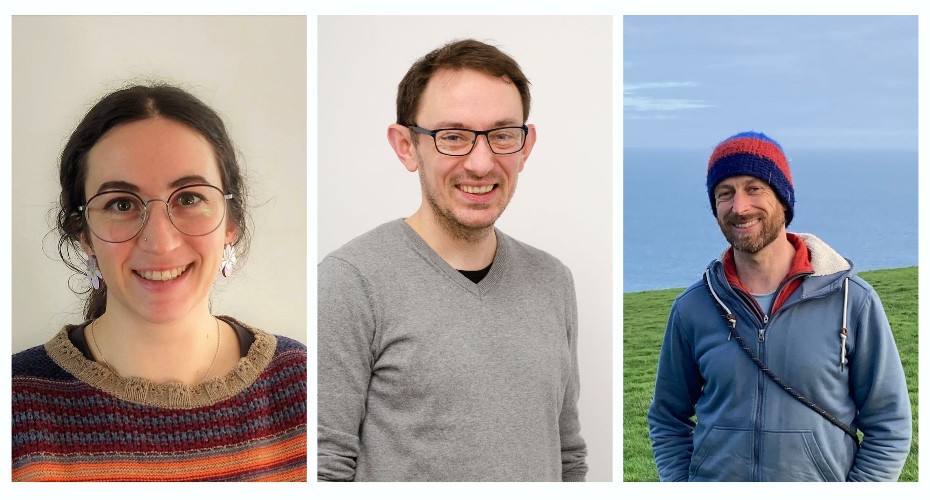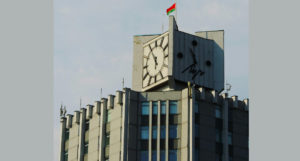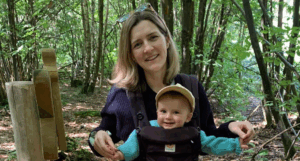Three Exeter academics awarded prestigious Discovery Fellowships

Dr Bridget Watson, Dr Bartek Troczka and Dr Dirk Sanders
Three University of Exeter researchers have been awarded Discovery Fellowships by the Biotechnology and Biological Sciences Research Council (BBSRC).
Dr Bridget Watson, Dr Bartek Troczka and Dr Dirk Sanders have been awarded the fellowships, which support researchers who show excellent potential and who wish to undertake independent research in a host research group and gain the skills to start moving towards being fully independent research leaders.
Dr Watson, Research Fellow at the Environment and Sustainability Institute, was recognised for her research determining the role of defence systems in the evolution of the Azospirillum-wheat mutualism to enhance crop yields for sustainable agriculture.
Talking about her fellowship, Dr Watson said: “I’m really thrilled to have been awarded a Discovery Fellowship by the BBSRC. During my fellowship, I will isolate and characterise soil bacteria that associate with plant roots and promote plant growth. In the bigger picture, my work will lead to farmers applying these beneficial bacteria to their wheat crops as a sustainable agriculture tool.”
Dr Troczka was recognised for his project of understanding the evolution and function of xenobiotic detoxification enzymes in a global crop pest.
Dr Troczka, Postdoctoral Research Fellow at the Science and Engineering Research Support Facility (SERSF), said: “It’s great to have been recognised by the BBSRC and awarded a Discovery Fellowship that enables me to expand my research project into insect P450 genes.
“Thanks to the expansion in insect genomic resources, a large number of insect P450 genes have been identified. However, due to the time and effort required to study these genes, the function of the majority of insect P450s remains unknown. Using an economically important pest species, Myzus persicae, as a case study, I will exploit recent breakthroughs in computational protein structure prediction and cell-free expression of recombinant protein to address these knowledge gaps.”
Dr Sanders was recognised for his research into the spread of antibiotic resistance in bacteria-plasmid networks.
Dr Sanders, Research Fellow at the Environment and Sustainability Institute, said: “I’m delighted to ave been recognised by the BBSRC and awarded a Discovery Fellowship to develop my research into Antimicrobial Resistance (AMR).
“AMR is rising to dangerously high levels causing a global health crisis by threatening our ability to treat common infectious diseases. With a series of experiments using simple and naturally complex microbial communities, I will determine the long-term impact of antibiotic exposure on the spread of AMR genes. I will investigate emerging networks between bacteria and plasmids as important vectors for AMR.”
Dr Sean Meaden, who previously held the post of Post-Doctoral Research Fellow at the Environment and Sustainability Institute, was also awarded a Discovery Fellowship, however, Dr Meaden has since started a new role at the University of York.
To find out more about the BBSRC Discovery Fellowships, visit: https://www.ukri.org/what-we-offer/developing-people-and-skills/bbsrc/fellowships/



